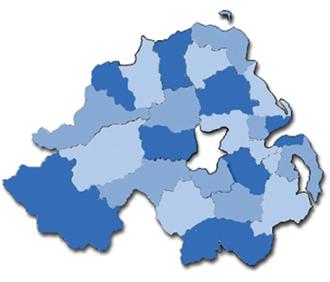
3 minute read
Advanced Maths
Sociology GCSE
Sociology is the study of human society. It draws on a variety of viewpoints in order to understand the social world around us, in an open and critical manner. It concentrates on the way we make society, what it is and how society shapes us. You will relate this to your own experiences of living in Britain. You will also study how societies have changed over time and how it differs across cultures.
Advertisement
Exam Board: AQA
How the course is assessed
There will be two final exams based on two units, each worth 50% of the GCSE. Each exam will be 1 hour 45 minutes.
Suitable Candidates
By studying Sociology you will develop a wide range of knowledge and understanding about how Sociologists study and understand social structures, processes and issues. You are encouraged to take a questioning approach to evidence and issues, thus developing critical, analytical and evaluative skills.
Students should be aware that this is a challenging GCSE. They will need to have strong literacy skills and be confident at writing essays. Students will need to be motivated, independent learners who are committed to hard work both inside the classroom and at home.
Course Outline
• The Sociological Approach • Families • Education • Crime and Deviance • Social Stratification • Sociological Research Methods
Post 16 Progression Routes
GCSE Sociology is not pre-requisite for AS or A level Sociology, however, it is an excellent foundation to support this.
It would be also be useful if you are considering studying or working in any of the following areas; Anthropology, Politics, Law, Economics, Social Work, Journalism or Global Relations.
Student Comments
“I love Sociology. I love how you get to know about different people and I feel there is a sense of unity when learning the subject. The key ideas are linked to many other subjects around school. It gives you a better understanding about key aspects of life. Our class are keen learners and love debating and discussing different issues.”
Statistics GCSE
Exam Board: AQA
There is considerable overlap between Maths and Statistics at GCSE level. This course will greatly benefit those who want to achieve a 6 or higher at GCSE Maths. Students will study topics covered in Maths GCSE but will have the opportunity to extend these and to use them in real life situations.
Data will be collected, presented and analysed using techniques such as pie charts, cumulative frequency polygons and histograms. Data will also be analysed by using the mean, mode, median, range, quartiles, percentiles etc. Probability is also part of the syllabus. In addition, students will learn new ways to interpret data looking at topics such as seasonal trends and population.
The course then moves on to look at other uses of statistics such as financial statistics (e.g. cost indices, RPI) and population statistics (birth and death rates).
Knowledge of statistical analysis is also becoming increasingly important in the work place. Having a GCSE in this subject will greatly benefit those students considering a variety of career options such as computing, business, education media and psychology.
How the course is assessed
2 written calculator exams (1 hour 45 minutes each) Papers include multiple choice and short answer questions as well as a Statistical Enquiry Cycle Question.
Suitable Candidates
Statistics is used across the curriculum in subjects such as Geography, Science, Environmental Science, Psychology and Philosophy. Students taking Statistics GCSE will gain an advantage of a ‘second’ Maths qualification at GCSE and it will aid the transition between GCSE and ‘A’ level. Students going on to study subjects including Science, Geography, Social Sciences and Psychology at sixth form college will find knowledge of Statistics extremely useful.
Post 16 Progression Routes
Note that students who are currently in Set Newton who particularly want to study Statistics as an option course should speak to Mr. Francis.

AS or A level Maths AS or A level Further Maths
Student Comments
“Statistics allows you to use Maths in the real world.”
“Statistics gives you an important insight into how data can be manipulated. I will never look at a survey the same!”







